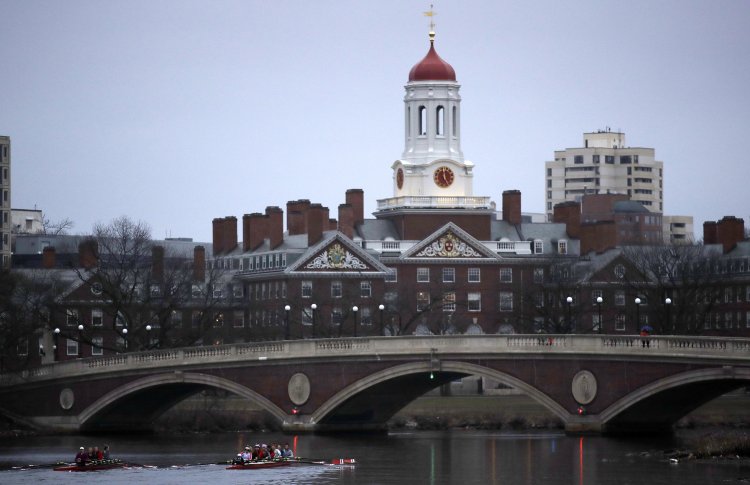Trump's Criticism of Harvard Is Absurd, Yet Changes Are Necessary. -- Editorial
The university's decision to confront Trump was justified. However, there are still necessary changes that need to be made.

However, after reading my alma mater’s letter that rejected the Trump administration’s conditions for continuing federal funding, I found myself expressing feelings I’ve never had before: I’m proud to be a Harvard alum.
The letter from the Trump administration is certainly worth reviewing. It’s best understood while envisioning the authors plotting what would be most objectionable to Harvard, most challenging to its independence, and the clearest indication of surrender should the institution comply with the list of demands.
The demands themselves may read innocuously but are rather extensive. Among other items, the administration calls for governance and leadership reforms, merit-based hiring and admissions reforms, viewpoint diversity in admissions and hiring, international admissions reform, reforms of programs with notable records of antisemitism or other biases, and the discontinuation of diversity, equity, and inclusion (DEI) initiatives. While not typically subjects of federal oversight, one could argue that the government has some right to influence its own investments.
However, the specifics reveal a mix of absurdity and harmful intent.
First, consider the absurdity: one proposal suggests reducing “the power held by students and untenured faculty” — who are already virtually powerless — while “empowering tenured professors and senior leadership” — who already hold significant power. Those to be empowered would likely align with the administration’s goals, while the powers of other faculty members would be diminished. Best of luck to the ad hoc committee tasked with balancing these conflicting directives.
Next, there’s the more troubling aspect: “Merit-based hiring reforms” would necessitate reviewing all current and potential faculty for plagiarism — a clear nod toward McCarthyism at Harvard. “International admissions reforms” would involve screening out students considered “hostile to American values and institutions inscribed in the U.S. Constitution and Declaration of Independence” — presumably contrary to the principle that “all men are created equal.” Perhaps the most confusing is “viewpoint diversity in admissions and hiring,” which would mandate an external review to ensure each “department, field, or teaching unit must be individually viewpoint diverse.” Individually viewpoint diverse! Aside from the apparent desire for thought control, how practically does that work for an individual?
I’m heartened that Harvard has exhibited more courage than other universities and major law firms, taking a strong stand against such a blatant assault. The “great grovel” from other institutions has been both remarkable and disheartening. Furthermore, I’m confident that Harvard will succeed in its legal arguments. The Trump administration’s letter, poorly constructed in various specifics, fundamentally violates basic First Amendment principles by making government benefits contingent on adopting specific viewpoints.
Should higher education and democracy survive this ordeal, Harvard and its elite counterparts will need to rethink the fundamental dynamics that have made them susceptible to such attacks.
Merely denouncing Trump for his misuse of legal processes won’t suffice. No fervent Trump supporter is concerned about the evident unconstitutionality of the Harvard demand letter. Nor do they mind that this whole saga began when Trump allegedly remarked, without regard for legality or the U.S. Constitution, “What if we never pay them?”
Many will only see Trump confronting Harvard, and in this battle, he might gain traction. Support for higher education is dwindling, and Harvard’s reputation is at a low point.
One significant reason for the widespread mistrust of Harvard is that it fails to serve individuals from diverse backgrounds.
A rigorous admissions policy is not inherently problematic. However, it’s important to recognize that Harvard is among 38 American colleges where more students come from the top 1 percent of the income distribution than from the bottom 60 percent. While race-based affirmative action has largely ended—due in part to strategic choices made by Harvard—it continues to prioritize legacy admissions, where 70 percent of legacies are white and those students are 70 times more likely to hail from the top 10 percent of the income distribution as opposed to the bottom 20 percent. In all its professed commitment to democracy, Harvard has become a vehicle for economic inequality in America.
The conservative assault on academia has been developing for decades, and Trump is intensifying it. However, elite universities should not make it easy for their detractors. If Harvard and its peers emerge relatively unscathed from this situation, they should take the opportunity to expand their appeal and reform themselves to truly serve the public interest—not Trump’s personal interests—by creating opportunities for many instead of a privileged few.
Tara Stone for TROIB News
Find more stories on Business, Economy and Finance in TROIB business












